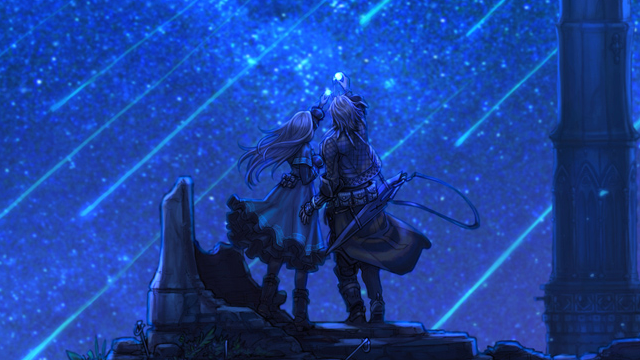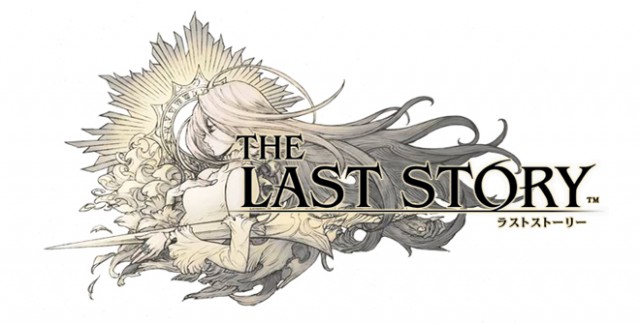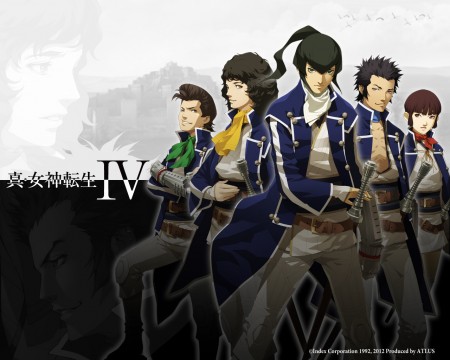
We are currently living in the golden age of video game localization. North American gamers who remember how hard we had to yell and scream to get Xenoblade and The Last Story to our continent just a few short years ago might be disinclined to believe this, but I assure that it is very true, indeed. While there may never be a time when every single weird and quirky title from all corners of the earth will see wide-scale releases in all major markets, the industry is in a place now that is more conducive to delivering unique experiences across languages, cultures, and countries than at any other time in its history.
As big a role as Nintendo has played in translating and releasing countless games from Japan, there was once a time where it also served as a major roadblock to some content finding its way to North America. Nintendo has always been a family friendly company, and to that end it has always been sensitive to potentially divisive topics, especially when it comes to religion in North America. On the light side, this form of censorship resulted in the red crosses being removed from the hospitals in EarthBound, but it also had a much greater impact on games with much stronger religious themes or symbolism. Consider the Shin Megami Tensei franchise from Atlus; each iteration utilizes characters and terminology pulled from various faiths and the early games, which saw release on Famicom/NES in Japan, were very heavily rooted in apocalyptic scenarios that one could easily see ruffling the feathers of some of the more conservative folks in the American bible belt.
Now, by no means is it completely fair to place all of the blame on Nintendo of America for Shin Megami Tensei not finding its way out of Japan sooner, because the overall gaming market played a major role as well. Developers and publishers had to be just as business savvy in the ’80s and ’90s as they are today, and the simple fact is that there simply didn’t appear to be a substantial enough market for some of the weirder stuff coming out of Japan at the time. The fact that early Final Fantasy and Dragon Quest games found success in most markets wasn’t a guaranteed indicator a game like Shin Megami Tensei would follow suit. While the former games were cloaked in the comfortable and familiar aesthetic of western concepts of fantasy role-playing, SMT was set in a modern Japan filled with equal measures of sci-fi technologies and demonic forces all the while drawing inspiration from various religious and mythological sources from all around the world. History has proven that many gamers find the uniqueness of the SMT games to be one of its greatest appeals, but 20 years ago it was a risk nobody was willing to gamble on.

Despite the pedigree of its developers, the effort to bring it to North America was ridiculous.
Thankfully, the nature of the industry has shifted considerably in the ensuing decades and we now live in a world where amazingly niche titles have the potential to see worldwide release. On the gamer side of things, fans have the ability to be more vocal than ever before, and some have even taken additional steps to be more proactive. The collective effort of the Operation Rainfall participants campaigning for American releases of Xenoblade and The Last Story proved an impressive and effective force of gamer willpower, but by no means is it the only display of gamers going the distance to get what they want. Sometimes, regardless of how much you beg and plead, you won’t get what you want, so you end up just having to make and/or take it yourself. Going back to EarthBound, both its prequel and sequel have never seen release outside of Japan, but that didn’t stop gamers using the Internet to disperse the fully translated yet unreleased ROM of Mother and then completely translating and releasing Mother 3. While these actions were unquestionably illegal, I believe it sent a very clear message to the industry that if you don’t let your fans purchase what they want, they will find a way to circumvent you and get what they want without paying you a dime.
The repercussions of fan driven actions like this have left their mark on the industry; even the larger companies have made efforts to satiate fans by releasing unlocalized games from past systems; just look at Sin and Punishment on Wii Virtual Console or the countless Japan-only PS1 games Sony has made available on PSN. However, the biggest impact has been the rise of smaller publishers who effectively specialize in bringing over niche titles from Japan. While it might have recently been bought out by Sega, the previously mentioned Atlus made its first real mark outside of Japan when it started publishing its own games in the late ’90s, and the company has now grown into a respected source for Japan developed games, most often RPGs, with settings, stories, and gameplay elements that any American publisher would have passed on. Atlus understood its games wouldn’t break sales records, so it focused on selling to its proven market, rather than trying to market to broader audiences.

20 years ago, it never would have met NOA guidelines; now the company trumpets it as a system seller.
This business model might not have made Atlus a massive success, but it kept the company profitable and earned the respect of its core fanbase who could appreciate the fact that their favorite games weren’t being watered down for the sake of mass appeal. Other companies have embraced similar business models as well. Xseed serves as the North American publishing arm of Japanese developer Marvelous and, along with working on the venerable Y’s games, were actually the ones who jumped at the opportunity to deliver The Last Story to North American gamers. Another major player in niche markets, Aksys, started life by working on localization for other companies, before it started publishing its own works and found success with the Guilty Gear and BlazBlue franchises. None of these companies will ever likely rise to be EA or Activision-like behemoths, but they have filled in the void everyone had left empty for most of gaming’s history.
The problem of great games going untranslated and unreleased is quickly becoming less and less of an issue. Yes, certain older games remain victims of outdated business strategies as their rights remain in the grips of companies who still can’t find a profitable enough model for their release, but we will see fewer and fewer of these cases as time goes on. The biggest publishers in the industry remain obsessed with a bloated business model, one that demands higher game budgets and final products that need to appeal to a broad enough consumer base in order to justify that budget and turn a profit, so they will continue to pass on weird games that don’t adhere to this way of thought. However, so long as there remains core groups of fans longing for unusual and distinctly foreign experiences, there will be publishers willing to bring the product to market. I don’t know if we will ever see official English language releases of Mother 3 or Live a Live, but their modern and future equivalents will likely see a more positive fate.




 ShareThis
ShareThis







+10 points for Live a Live reference.